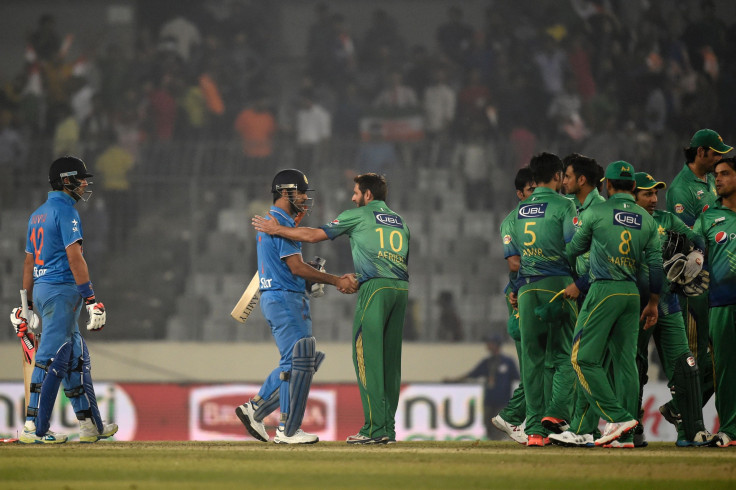India vs. Pakistan Cricket 2016: Security Concerns And Early Preview For World T20 Match

Getting two of sports’ greatest rivals together on a cricket pitch has again proved no straightforward task. Since the Mumbai terror attacks of 2008, political, and cricketing relations, between India and Pakistan have been severely strained.
Bilateral series between the two neighbors were due to resume in December, only to be called off as the Indian government failed to provide the go ahead. Now, it is the Pakistan government that continues to express reluctance to allow their side to travel to India for this month’s World Twenty20, the showpiece event in cricket’s newest and most explosive format.
The focus of the attention and the questions over security arrangements has unsurprisingly been on India’s contest with Pakistan on March 19. As Pakistan have delayed their departure to the tournament, there has even been talk that they could play their matches in a neutral venue. Cricket’s governing body, the International Cricket Council (ICC), has already taken the proactive step of moving the India-Pakistan match from the hill city of Dharamsala to Kolkata.
Still, less than a week before their first match is scheduled to take place, Pakistan’s team has not been given the green light to travel. On Thursday, interior minister Chaudhry Nisar made it clear that they would only do so if and when the Indian government publicly guarantees the team’s safety during the tournament.
“The ICC and the BCCI (India’s cricket association) have been very accommodating, but it is the Indian government's security assurance that matters the most,” he said, reports the Associated Press. “Thus far, there has been no such indication from them.”
Thus there remains a possibility that not only will the most eagerly anticipated match of the World T20 not go ahead, but that Pakistan might pull out of the tournament all together. That would be a massive blow to organizers, given that the India-Pakistan match at last year’s 50-over World Cup was estimated to have been watched by one billion viewers across the globe. However, one could be cruel and say it is doubtful how much would be lost from the tournament on the pitch by Pakistan’s absence.
Pakistan have been on a wretched run of form in Twenty20 cricket. They have lost seven of their last 10 matches in the format, including heavily to India in the Asia Cup last month. The selectors have responded to their disappointing results at the tournament in Bangladesh, where they failed to reach the final of the five-team event, by making a last-minute alteration to their squad. Batsman Khurram Manzoor, who scored just 11 runs in three innings at the Asia Cup, was replaced by Ahmed Shehzad earlier this week.
“The inclusion of Khurram backfired and as a chief selector I take full responsibility,” was the frank assessment of chief selector Haroon Rasheed to ESPN Cricinfo.
India, in contrast, are flourishing. Under the veteran leadership of Mahendra Singh Dhoni they have won 10 of their 11 T20 matches in 2016 and surged through the Asia Cup, winning all four group matches and then the final against hosts Bangladesh to take the trophy. In doing so they also recorded their sixth victory in the seven T20 matches against their biggest rivals, meaning that making it to Kolkata for the March 19 meeting will be just the start of Pakistan’s challenge.
© Copyright IBTimes 2024. All rights reserved.





















